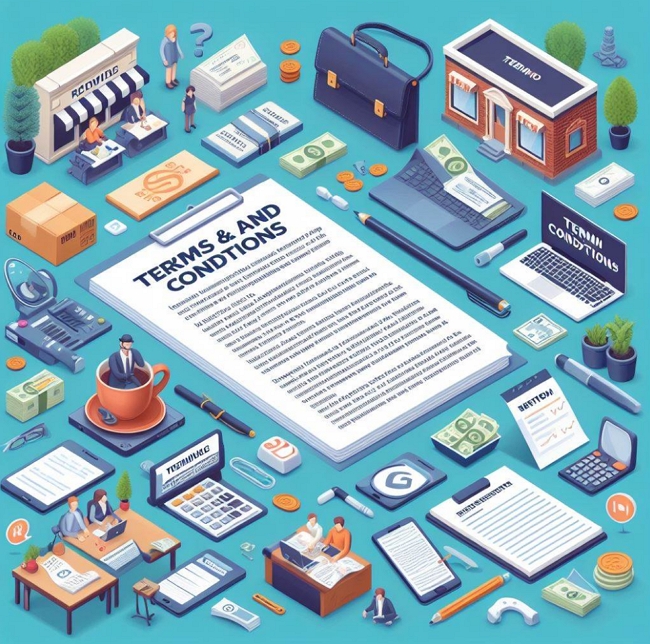
Running a shop requires ensuring your terms and conditions accurately reflect your policies. It protects your business practice; failing to update it can lead to costly problems.
Let me share an example that recently happened with one of my clients:
My client owns a newsagency where they now sell various household goods. They had written up his terms and conditions, which they put into their computer several years ago to print out when they sold items. Recently, they sold an expensive kitchen appliance to a customer. The customer took it home and put it on their account.
When my client could not get payment from the customer, they sent the account to a debt collection agency after a while. The agency told them there were no fees to them, but only to their customer if they paid, and then they sent a letter demanding payment. At first, the customer stalled, requiring the agency to do more work. Then, the customer took my client to the small claims court. Now, the debit collector dumped my client and gave them a bill for their services, claiming that my client had not followed their instructions, which was true. My client paid the bill, thinking they would get it back from the small claim tribunal. They now found themselves in the small claims tribunal. Well, they settled with the customer for much of the value of the goods that they had sold, but because my client's terms and conditions didn't mention anything about debt collection fees, the mediator told them that the debt collection fees they could not get it. So, my client was able to recoup much of the cost of the appliance itself, but not the fees from the collection agency.
My client has updated their terms and conditions to include the right to claim third-party debt collection fees if the goods are not paid.
Why You Need Up-to-Date Terms and Conditions
Outdated terms and conditions can create many problems:
-
They may not comply with current laws and regulations. Laws and regulations related to sales, returns, privacy, and more are constantly evolving. Old terms and conditions may no longer be legally valid or changed clauses.
-
They may not address new market conditions. If you now accept PayPal, your old terms won't cover the fine point of these transactions.
-
They may not reflect your current policies and practices. As your business grows and changes, your policies likely do too. You'll run into issues if your terms and conditions don't align with your real-world policies.
-
They may not protect you in disputes. As the example with my client shows, old terms and conditions may not give you the legal protection they need in the case of a dispute.
Critical Sections to Review and Update
Review your terms and conditions regularly to protect your business and update them as needed. Here are some key sections to pay close attention to:
Payment Terms...
Delivery and Shipping...
Product Details...
Privacy Policy...
Liability and Disputes...
A helpful tip is to review the terms and conditions of large, reputable retailers as a starting point when updating your own. Large retailers likely have robust terms and conditions that legal experts have vetted, so their documents can serve as valuable templates and give you ideas for sections to include in your terms and conditions. All you have to do often is customise their language to fit your specific business needs and policies.
Add a Debt Collection Fee Clause
Most importantly, in this example, include a clause stating you have the right to claim any third-party debt collection fees from the customer. For example:
"If Customer fails to pay an invoice and the account is sent to collections, Customer agrees to pay all third-party debt collection fees incurred."
This simple statement strengthens your ability to recover all costs should you involve debt collectors for unpaid balances. Don't make the same mistake as my client - update your terms and conditions today!
I am not a lawyer, so if you have any other questions about keeping your terms and conditions current, I am happy to help!


